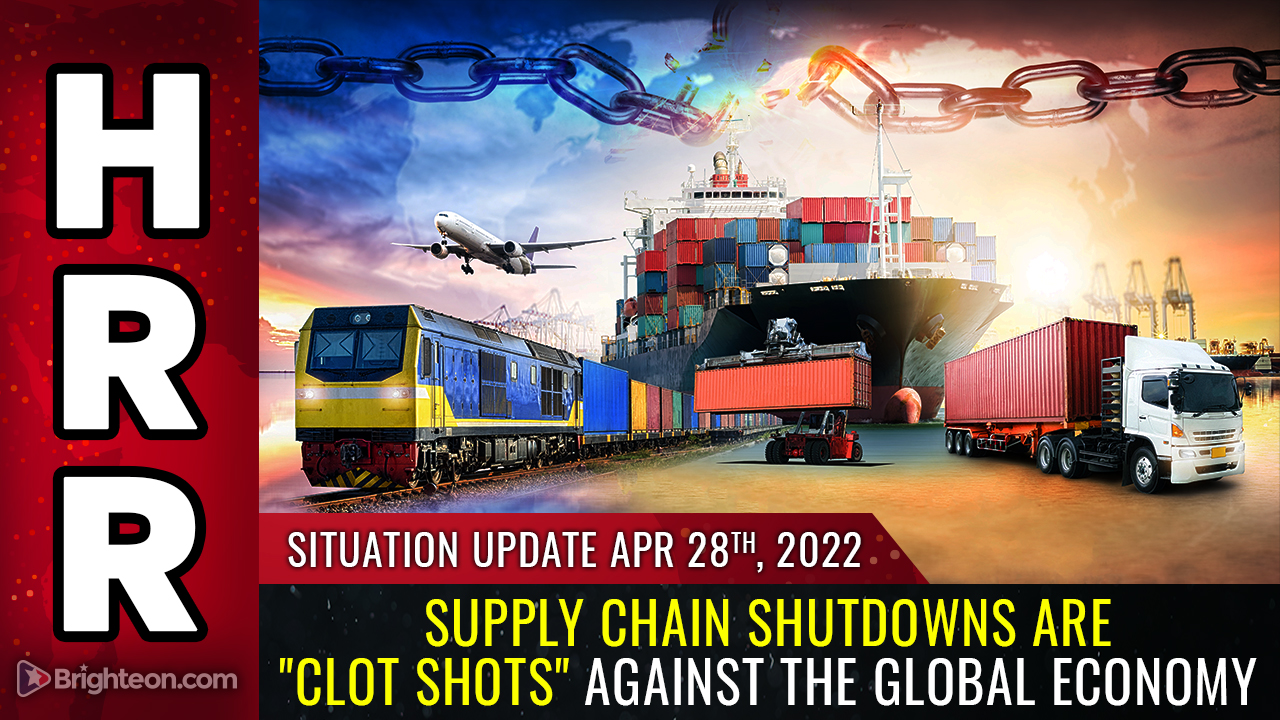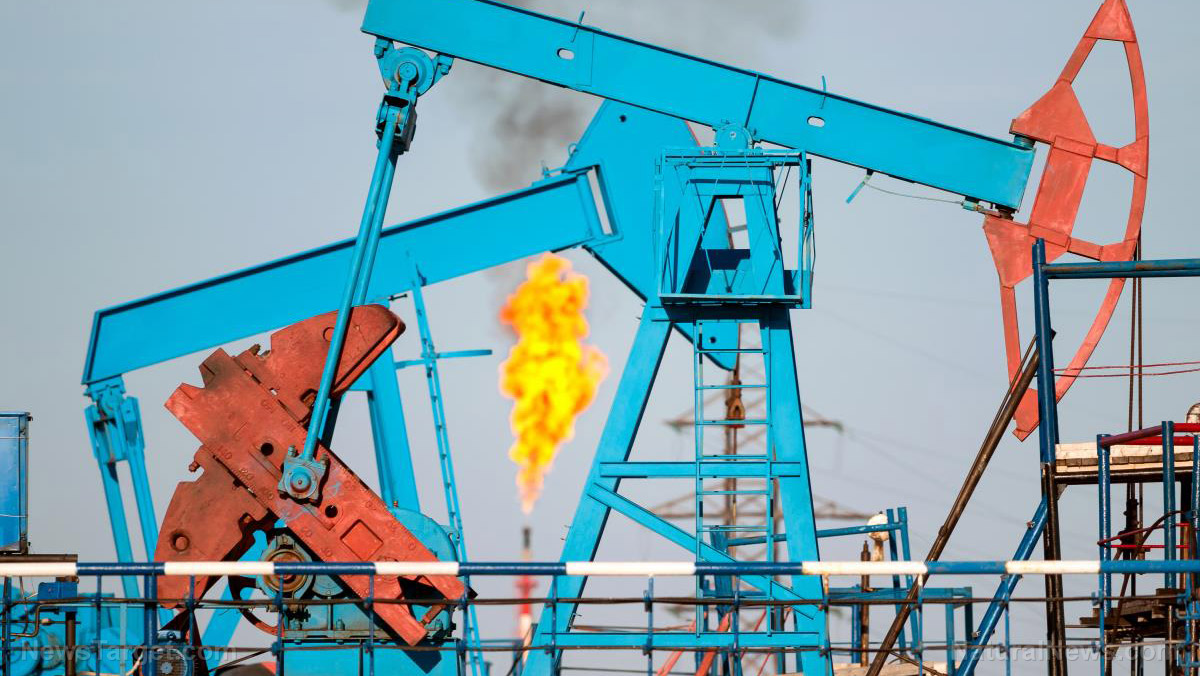Oil prices continue to surge amid fears of approaching supply crisis
03/20/2022 / By Arsenio Toledo

The price of oil worldwide surged once again on Thursday, March 17, after the International Energy Agency (IEA) warned that the world could experience a massive shortage in the global oil supply by next month.
According to the IEA, Russian oil production could shrink by nearly three million barrels per day (bpd) while Russian oil exports could fall by 2.5 million bpd next month.
The IEA described this massive loss in oil supply as the “biggest supply crisis in decades,” and that the loss would be far greater than the expected drop in demand for oil of one million bpd due to the surge in fuel prices all over the world.
“The prospect of large-scale disruptions to Russian oil production is threatening to create a global oil supply shock,” wrote the IEA.
Oil benchmarks in recent weeks have undergone their most volatile period since early 2020 when the massive drop in demand affected global oil prices.
Prices in recent weeks have been surging following the Russian invasion of Ukraine, the sanctions and embargoes on Russian oil and the expectations of analysts that shortages will soon squeeze the energy market. (Related: Russian Deputy PM: Rejection of Russian oil would lead to catastrophic consequences for global market.)
Oil price to remain volatile for some time
Brent crude futures, one of the main benchmarks for gauging the price of crude oil, surged by $8.62, or 8.79 percent, to rest at $106.64 per barrel. This is Brent crude’s largest single-day percentage gain since mid-2020.
U.S. West Texas Intermediate crude futures rose by $7.94, or 8.35 percent, to $102.98 per barrel.
Investors have warned that the price of oil will remain volatile for some time, especially if the war in Ukraine continues and the sanctions and embargoes on Russian oil remain in place.
In the last eight trading sessions, the price of a barrel of Brent crude has traded for as high as $139 and as low as $98. This is a spread of more than $40, and this volatility has frightened many investors, causing them to exit.
Unfortunately, traders, bankers and financial analysts have pointed out that the sudden departure of many crude futures investors is creating the conditions for more wild swings to occur in the weeks ahead.
Investment bank and financial services company Morgan Stanley predicted that the price of Brent crude during the third quarter of the year could reach as high as $120 a barrel. This is a $20 increase from its previous forecast. The company further predicted the Russian oil production industry to shrink in output by one million bpd starting in April.
Swedish financial company SEB, meanwhile, predicted that the next two quarters will be difficult for the global oil supply.
“Both supply and demand are hurting, but supply is currently hurting more and a tight oil market for the coming two quarters is to be expected,” wrote SEB in a report.
“There are renewed worries again in the market that we could lose some more Russian oil,” said John Kilduff, a partner at investment consulting company Again Capital LLC.
Morgan Stanley noted that while demand for Russian oil has been restricted due to sanctions and embargoes, Russian ports continue to load crude and refined products into Russian tankers, but most of them are heading out into international waters with uncertain destinations.
On Wednesday, March 16, prices dropped slightly after the market reacted to recently released United States government data showing crude oil inventories climbing to 4.3 million barrels last week, contrary to the expectations of analysts that the country would post an inventory decline of 1.4 million barrels.
Power.news has the latest information on the global oil supply crisis and other breaking news reports on the energy market.
Listen to this episode of the “Health Ranger Report” as Mike Adams, the Health Ranger, talks about how the current oil crisis is heralding the coming collapse of the U.S. dollar.
This video is from the Health Ranger Report channel on Brighteon.com.
More related stories:
Biden mulls deals with Iran, Venezuela after announcing ban on Russian oil imports.
Oil prices soar as Russian sanctions stir supply chain concerns.
Sources include:
Submit a correction >>
Tagged Under:
collapse, crude oil, economic collapse, economic crisis, economics, economy, energy, finance, financial collapse, financial crisis, fossil fuels, global oil prices, global oil supply, inflation, oil, oil crisis, oil prices, oil shortage, oil supply, Russia, Russo-Ukrainian War, Ukraine war
This article may contain statements that reflect the opinion of the author
RECENT NEWS & ARTICLES
COPYRIGHT © 2022 FuelSupply.news
All content posted on this site is protected under Free Speech. FuelSupply.news is not responsible for content written by contributing authors. The information on this site is provided for educational and entertainment purposes only. It is not intended as a substitute for professional advice of any kind. FuelSupply.news assumes no responsibility for the use or misuse of this material. All trademarks, registered trademarks and service marks mentioned on this site are the property of their respective owners.



















